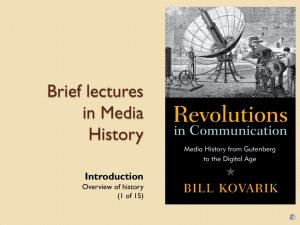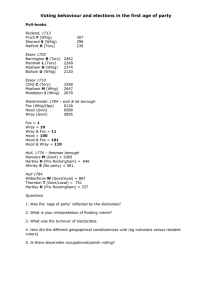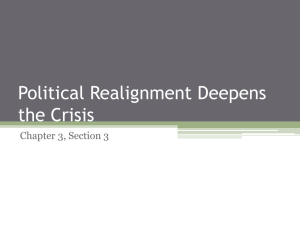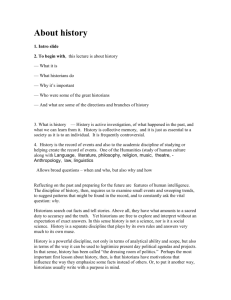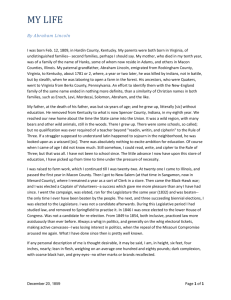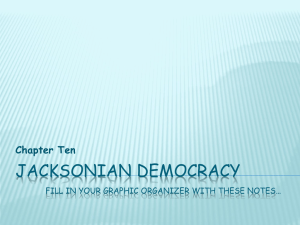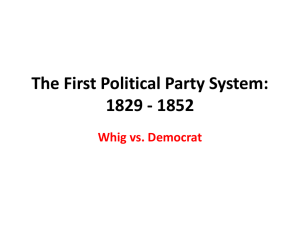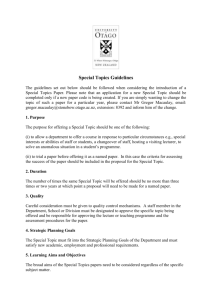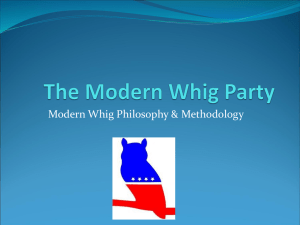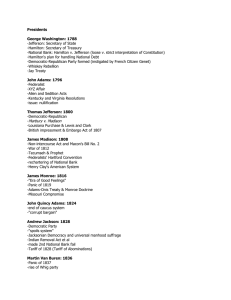The Enlightenment and the History of Ideas: Progressivist Histories
advertisement
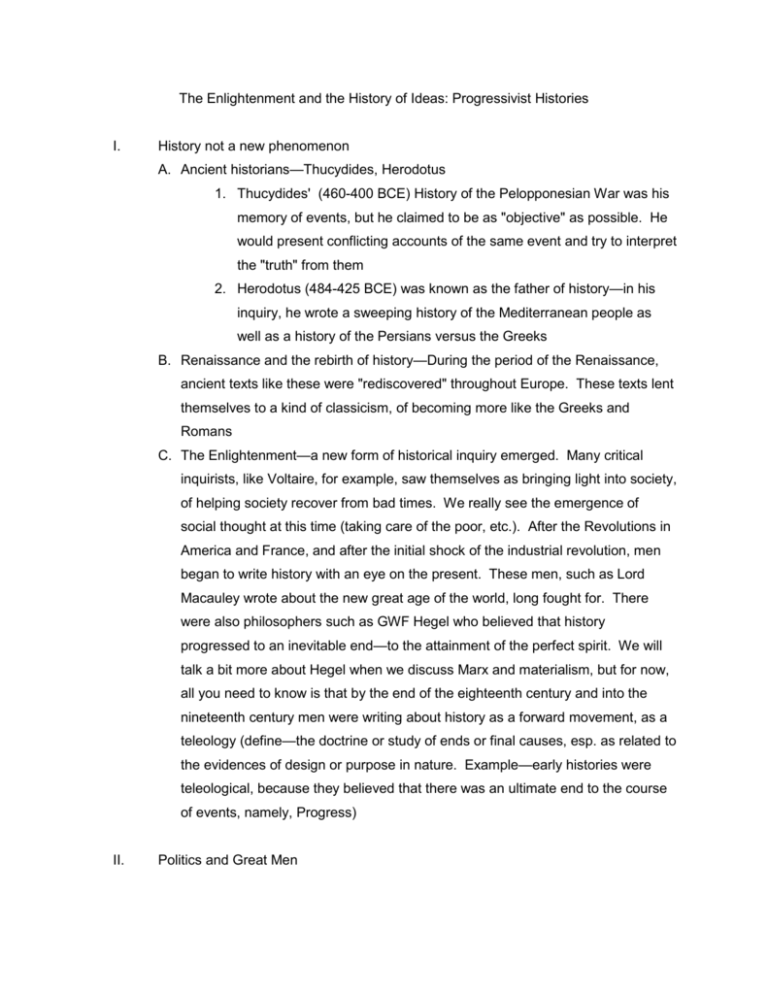
The Enlightenment and the History of Ideas: Progressivist Histories I. History not a new phenomenon A. Ancient historians—Thucydides, Herodotus 1. Thucydides' (460-400 BCE) History of the Pelopponesian War was his memory of events, but he claimed to be as "objective" as possible. He would present conflicting accounts of the same event and try to interpret the "truth" from them 2. Herodotus (484-425 BCE) was known as the father of history—in his inquiry, he wrote a sweeping history of the Mediterranean people as well as a history of the Persians versus the Greeks B. Renaissance and the rebirth of history—During the period of the Renaissance, ancient texts like these were "rediscovered" throughout Europe. These texts lent themselves to a kind of classicism, of becoming more like the Greeks and Romans C. The Enlightenment—a new form of historical inquiry emerged. Many critical inquirists, like Voltaire, for example, saw themselves as bringing light into society, of helping society recover from bad times. We really see the emergence of social thought at this time (taking care of the poor, etc.). After the Revolutions in America and France, and after the initial shock of the industrial revolution, men began to write history with an eye on the present. These men, such as Lord Macauley wrote about the new great age of the world, long fought for. There were also philosophers such as GWF Hegel who believed that history progressed to an inevitable end—to the attainment of the perfect spirit. We will talk a bit more about Hegel when we discuss Marx and materialism, but for now, all you need to know is that by the end of the eighteenth century and into the nineteenth century men were writing about history as a forward movement, as a teleology (define—the doctrine or study of ends or final causes, esp. as related to the evidences of design or purpose in nature. Example—early histories were teleological, because they believed that there was an ultimate end to the course of events, namely, Progress) II. Politics and Great Men A. Macaulay, Lord—his history of England, a great example of the whiggism discussed by Butterfield. Macaulay (1800-1859) was the son of a reformer and philanthropist. He had deep-rooted "Whig" sympathies. Entered Parliament in 1830 and strongly supported the Reform Bill which would be known as the Great Reform Act of 1832. He served for a time as an administrator in India, and returned to again serve in Parliament. He retired in 1856 B. Looking at the world and its development—His History of England is a discussion of the consolidation of the Revolution of 1688 as a mark of triumph for progress and English development. Towards the end of the extant history, he writes (get the overhead quote) III. Progress A. The "Whig" Historians—Macaulay was unabashedly a whig. But what exactly is a "whig"? B. What is a whig? 1. historical definition—Whig was a political Party in England; the political party that supported William III in the Glorious Revolution as opposed to the Tories, who supported James. Whigs were traditionally in favor of greater parliamentary control and were often on the side of legislation designed to help society. Whigs were the authors and greatest supporters of the Great Reform Bill, and After the 1840s whigs became known as liberals and Tories became known as Conservatives (hence the names of two of the political parties in England today). 2. historical euphemism ("whiggism")—But "whig" is used in another way as well, in a way designed to critique the attitudes of men like Macaulay. In your reading today, you have an excerpt from the short book "The Whig Interpretation of History" written in 1931 by Herbert Butterfield. a. Herbert Butterfield and 20th-century "professsionalized" history. He wrote this work as a young historian. Against some of the more famous historians of the time (GM Trevelyan, Lord Acton) b. Is Whiggism really bad or does Butterfield just have an axe to grind? i. it seems that he's right on one level. We shouldn't be presentist, we should examine the past for meaning and take it on its own terms. ii. But what we see in his work is also some element of "archivalism." Of just looking at the sources and letting them tell a story. Quote on overhead. What is the problem with this? We must interpret, we must make sense of the past. IV. Conclusions
